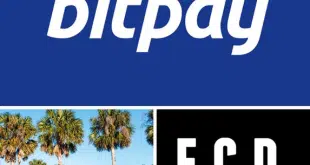Nothing like an unexpected chargeback to turn a recalcitrant merchant into an EMV believer. According to new survey results from Javelin Strategy and Research, only 8% of small and so-called micro businesses queried in February who didn’t accept EMV chip cards cited as a reason the lack of a business case for the cards. That figure was way down from the 33% of small merchants that claimed a lack of business case in a similar Javelin survey in November 2014.
In between those two surveys, in October 2015, the payment card networks’ EMV liability shifts took effect. Those shifts assigned financial liability for counterfeit transactions to the party, issuer or merchant, that didn’t support EMV. Previously, issuers bore the lion’s share of such losses.
“They [merchants] are starting to realize what it’s all about,” said Mark Nelson, senior vice president at Bank of America N.A. Nelson was a panelist Monday afternoon at an EMV session during the BAI Payments Connect 2016 conference in San Diego during which Javelin reported the new survey results, which queried 1,200 businesses.
“All you need is one big, massive chargeback,” panel moderator Michael Moeser, director of payments at Pleasanton, Calif.-based Javelin, tells Digital Transactions News.
Of course, there are now more business reasons for merchants to accept EMV cards, especially since banks and credit unions have replaced millions of magnetic-stripe credit and debit cards with chip cards. But avoiding chargebacks is indeed a major EMV-related business issue that merchants are confronting.
Thanks in part to the higher risk of chargebacks, some 54% of small and micro-businesses that didn’t accept EMV cards in February plan to be EMV-enabled within a year, according to survey findings. Javelin defines a small business as one with $1 million to $10 million in annual sales, and a micro business as an entity with $100,000 to $1 million in yearly sales.
The survey found that 46% of these businesses accepted EMV cards in February, up from 22% in the November 2014 survey and only 11% in December of 2013. Assuming the non-EMV-accepting merchants convert at the rate they say they will, roughly three-quarters of the nation’s small business should be accepting EMV cards in 2017, according to Moeser.
Asked about other reasons for not yet taking EMV cards apart from the business case, 33% of the non-acceptors cited cost, 17% blamed the need for new hardware, 16% listed security concerns, and 8% cited the consumer impact.
EMV certainly has produced consumer impacts. A big one was customer confusion, especially when cardholders received new cards out of normal re-issuance cycles, or when some merchants accepted chip cards and others didn’t during the 2015 holiday season, according to panelist Shannon Johnson, senior vice president and head of deposits and payments at Atlanta-based SunTrust Bank.
“There was a lot of confusion out in the marketplace … all the media attention caused a lot of calls,” she said.
Panelists also noted that consumers have complained of longer transaction times when chip cards are inserted, or “dipped,” into EMV terminals compared with fast swipes of mag-stripe cards. But Nelson, without giving details, said “there is work underway to see if they can do anything about the time to validate that cryptogram.” That was a reference to the one-time codes that EMV chips generate, making it much more difficult for fraudsters to copy cardholder data compared with easily-copied mag-stripe cards.
Meanwhile, another panelist, Tom Misson, manager of MasterCard Inc.’s North American small-business segment, declared that despite the problems, “overall, EMV has been an exceptionally successful endeavor.”
Misson said that while fraudsters will be turning their attention to card-not-present channels now that point-of-sale fraud will be harder to commit, the U.S. nonetheless can expect a net reduction in overall fraud losses thanks to EMV. According to Mission, Canada and Brazil have seen counterfeit-fraud reductions of more than 80% since their EMV conversions, and Mexico has seen a 77% decline.




